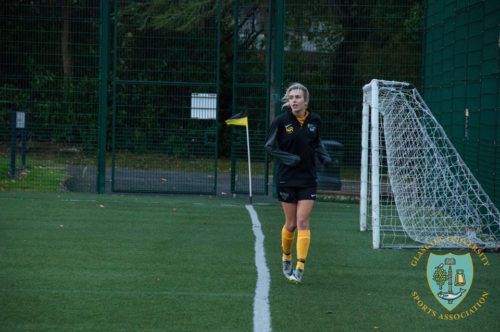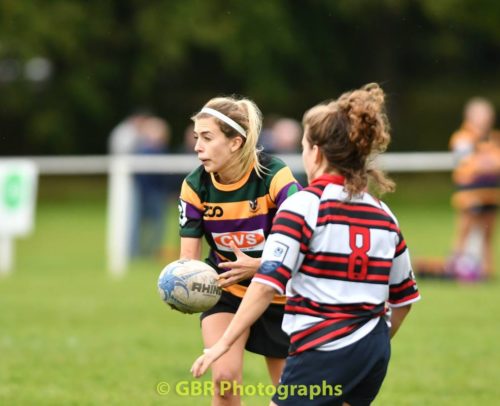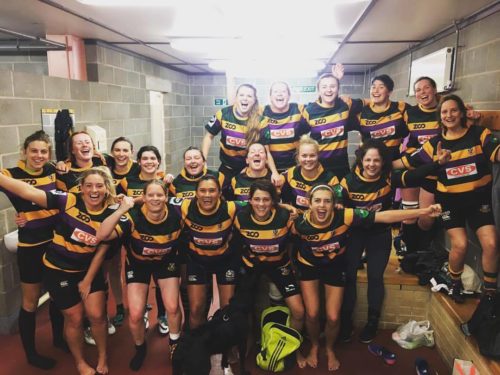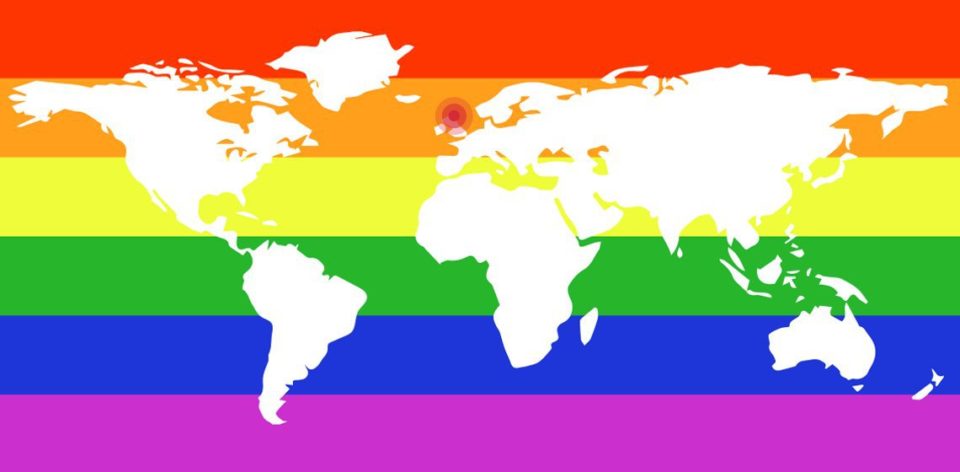This month we are inviting you to pay a virtual visit to Scotland, where the COVID-19 is not a reason to make the life of the LGBTQ community harder but on the contrary. Welcome Sirri from LEAP Sports!
Can you introduce yourself please?
My name is Sirri Topping, I'm 27 years old, born in Northern Ireland but living in Glasgow, Scotland. I work for LEAP Sports, Scotland's LGBTI Sports charity, leading on Community and Event projects. Currently, I play rugby for Cartha Queens Park Women's Rugby Club. Sport has always played a huge role in my life. Since I could run, I was doing it with a ball at my feet. Growing up, Saturdays at Coleraine Showgrounds (football) was a regular part of my week. However, my immersion in a masculine pastime always came with a sense of discomfort and inequality. As early as primary school, I needed to work twice as hard as the boys to make the football team. As I approached my teenage years the innocent labelling of “tom boy” changed to slurs like “butch,” “lesbian” and “dyke,” simply because of the sport I loved to play and watch.
At 18 I moved to Scotland to study at the University of Glasgow. It wasn't until I started playing football for the university that I realised all the slurs that had been targeted at me for years were true - I liked women. It was there I came to realise that you didn't need to have short hair to be a lesbian, that you could experiment with masculinity and femininity as you pleased. At the same time, I hated that all those homophobes were right, I didn't want to live up to the stereotypes and give them validity. Coming out as a lesbian footballer was like giving them the ammunition they needed to paint other women in the game with the same brush. In staying closeted, I was protecting football. Until I wasn't anymore. It took many deep meaningful conversations with teammates to realise that I wasn't the only one coming to terms with my identity and that visibility was far more powerful than hiding. Coming out empowered teammates to do the same.
On a quest to find out more about the relationship between sport and gender & sexual orientation, I undertook a Master’s in Equality and Human Rights. From there I joined LEAP Sports, where I work for a greater inclusion for LGBTI people in sport and against homophobia, biphobia and transphobia in a sports context. Up until joining LEAP, I thought my supportive football team was a unique community in the world of sport, but I was pleased to be proven wrong. Scotland has a variety of LGBTI sports groups and clubs, who exist on the premise of creating inclusive spaces and it is uplifting to work with them.

That was an impressive recollection of a genuine journey. Thank you for sharing. Now, tell us a bit about Scotland please.
For me, Scotland feels like a safe, accepting and inclusive place to be a lesbian. Scotland has been considered to be among Europe's most progressive countries. Policy-wise, “Adoption and Children (Scotland) Act 2007” extended the law on adoption to allow same-sex couples to adopt jointly and Scotland legalised same-sex marriage through the “Marriage and Civil Partnership (Scotland) Act 2014.” For same-sex couples who want an equal footing in family life in Scotland, things are relatively breezy, but looking outside a homonormative framework, we still have a long way to go to reach equality for Trans, Queer and other diverse or non-conforming identities, who continue to face discrimination, harassment and higher rates of suicide.
Since 2004, Trans people across the UK have had the right to legally change their gender by applying for a Gender Recognition Certificate. However, the current process is burdensome, expensive and intrusive, including Trans people having to supply proof of living in their gender for at least two years and a detailed medical and psychiatric report. In a bid to be in step with some European countries, the Scottish Government drafted and consulted on the Gender Recognition Reform (Scotland) Bill, which is currently on hold in light of COVID-19. The draft Bill eases the current pathway in the direction of a self-declaratory system, which would remove the need for a panel and medical reports, reduces two years to three months and reduces the minimum age of recognition to 16, from 18.

That is good to hear. In Hungary, the pandemic brought about the opposite regarding legislation connected to Trans people. The government tries to make it impossible for them to change their gender -- who knows why it is related to COVID-19. Now tell us a bit about Glasgow.
I feel comfortable being my authentic self in Glasgow and often compare it to the reality I would have faced in Northern Ireland. For example, I've always been able to hold my partner's hand here, whereas we received unwanted attention the last time we did so in Northern Ireland. Despite being just a 30-minute flight away from each other, things feel very different between the two.
My opinion is that there's good visibility among the LGBTI community in Glasgow, because it is a cosmopolitan cultural-hub. This generally equates well for Lesbian life here. As a sports-head involved in both football and rugby, I've found my lesbian, bisexual and ally community in women's sport. As such, I've never felt the need to look beyond those settings for a sense of lesbian community.
There are of course gay bars and clubs, which I frequented during my early 20s, but these are predominantly attended by gay men and hen-dos. There are other spaces I have heard of throughout the city which are more inclusive, as varied as cafes, choirs and book clubs, but it can often be difficult to find them.

Finally, can you share a funny, memorable, or inspirational coming out story of yours?
The toughest person to come out to was my Dad. It was 2014, I had met the woman I knew I was going to spend the rest of my life with. I realised it was always going to be difficult to come out to him given the more conservative and religious outlook that's held in Northern Ireland. Still, I really wish I could have said 'Dad, I've got a girlfriend and there's something you need to know - she slurps her tea', but instead it had to be about her gender, which is such a small and uninteresting part of someone. Unless you've been there, you can't understand the fear and pain of having to say the words 'I'm gay' to someone you love, not knowing if they're ever going to look at you or love you the same way from that moment on. But the words were blurted out accompanied by lots of tears (from me), 'I can't say I'm not disappointed' was definitely the lowest point of the conversation, but I think once he got to know my partner, he realised that my life wouldn't be as hard as he first worried it would be.

